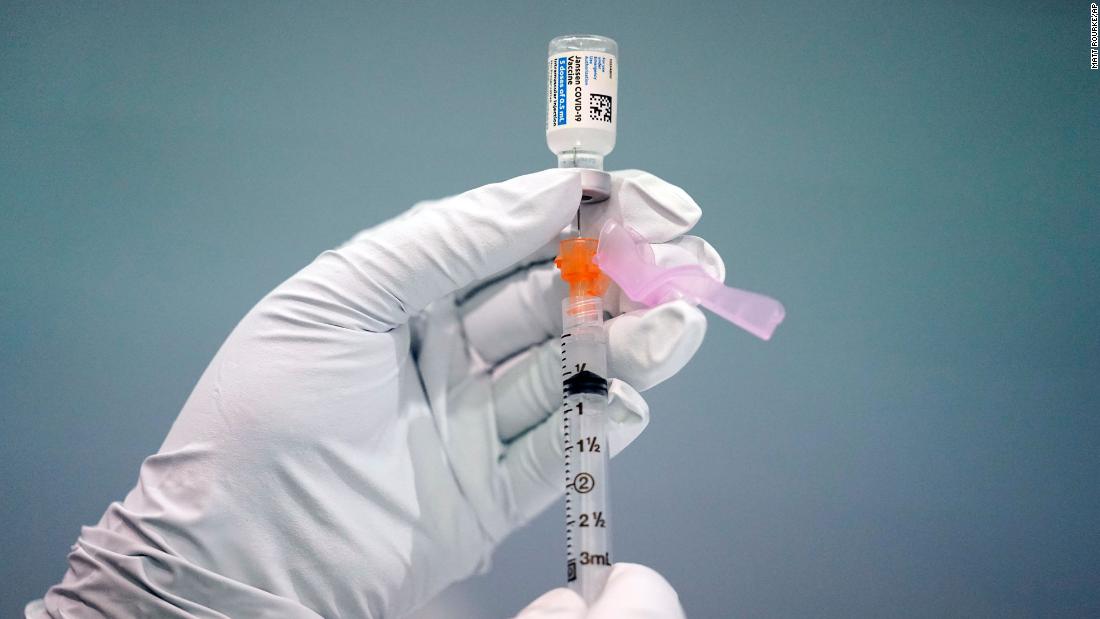(CNN) — Covid-19 vaccination rates have dropped and cases are on the rise, compounded by the more communicable delta variant, and one expert says the key to winning the race against the spread is vaccinating more Americans.
“We are wasting time. The delta variant is spreading, people are dying, we can’t wait for things to get more rational,” Dr. Francis Collins, director of the National Institutes of Health.
Vaccines have been available to most Americans for months, but still only 48.2% of the country is fully vaccinated, according to the US Centers for Disease Control and Prevention (CDC), and the rate of new vaccinations is decreasing.
Meanwhile, case rates have risen dramatically. In 47 states, the rate of new cases in the last week is at least 10% higher than the previous week, according to data from Johns Hopkins University. Of these, 35 have experienced increases of more than 50%.
Officials and experts have said that misinformation is largely to blame for the large number of unvaccinated Americans, a group now experiencing the greatest impacts of the pandemic.
“This is not just a matter of people expressing opinions that might be wrong, this is life and death,” Collins said.
Much of the data now shows that more than 99% of people currently hospitalized with COVID-19 are not vaccinated, Collins said. That means those who are vaccinated have enough protection not to get seriously ill, Collins said.
And vaccines continue to show signs of being very effective against the delta variant, he said, which is one of the biggest concerns for health experts today.
Collins said he hopes the American public will pay attention to the data and decide that getting vaccinated is the safest and smartest thing to do.
“I hope people hear this, right now hearing this: If you’re not sure if vaccination will help you, listen to those numbers,” Collins said. “Why are we waiting folks? Let’s roll up our sleeves if we haven’t already.”
Extra doses can help people with compromised immune systems
Experts have speculated that there may be a need for covid-19 vaccine boosters in the future, but many have said that, for now, current vaccines appear to provide sufficient protection.
Pfizer said last week that a booster may be needed for its vaccine six months to a year after completing the first two doses of the vaccine, prompting a rare public reprimand from the CDC and the US Food and Drug Administration (FDA). The company met with management and top public health officials this week to discuss the data.
“We do not believe reinforcements are needed at this time,” Acting FDA Commissioner Dr. Janet Woodcock said Wednesday.
“We will follow the data on declining immunity over time and data on the acquisition of infections by those vaccinated to see if, at some point, it appears that a boost would be warranted,” Woodcock said in an organized conversation. by STAT News.
The most important conversation at this stage, he said, is vaccinating unvaccinated people.
But Collins pointed out that, for some people, an extra dose – not a booster – can help their immune response reach a fully vaccinated level.
“People who are immune-deficient, who didn’t get a complete response to the original pair of doses of Moderna or Pfizer, or the single dose of J&J, maybe an extra dose could help those people,” Collins told CNN’s Erin Burnett , specifically targeting organ transplant recipients and cancer patients receiving chemotherapy.
“However, I wouldn’t call that a booster,” Collins added. “I would just say that you are trying to get primary immunization at the level you need, that’s under consideration.
What Vaccinated People Should Know About Covid-19 Exposure, Testing, and More
Routine vaccinations for children are being delayed
As covid-19 vaccination rates lag among certain age groups in the U.S., routine vaccinations for children also appear to be declining, experts say.
Vaccines for Children (VFC), a federally funded program that provides vaccines to children whose families may not be able to pay, has seen orders drop below pre-pandemic rates, putting children at risk for preventable diseases with vaccines, a senior federal vaccine official said Wednesday.
“These are really big reductions that raise a lot of concern about children who have missed doses,” said Dr. Melinda Wharton, director of the CDC’s division of immunization services, in a web briefing.
Through the VFC program, CDC purchases vaccines and distributes them to clinics and doctors’ offices. About 50% of children nationwide are eligible for the VFC program, according to a 2014 report.
Since January 2020, VFC orders have been reduced by 12.5 million doses, according to Wharton. A CDC spokesperson said states, doctors’ offices and others ordered 98.7 million doses of vaccines under the program in 2019. As of mid-June this year, 86.2 million doses had been ordered.
Orders for vaccines that prevent measles they were the furthest behind, 18.5% less than before the pandemic. Wharton said this rate “may be a little over the top because of the measles outbreaks that occurred during 2018-2019, but it’s still a really substantial reduction and raises a lot of concerns when we think about kids going back to school.”
CNN’s Virginia Langmaid, Lauren Mascarenhas, and Sarah Braner contributed to this report.
–


